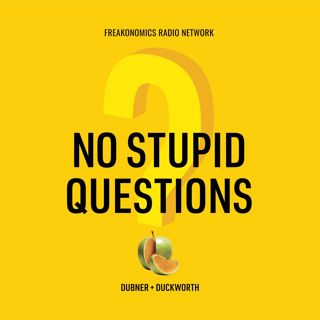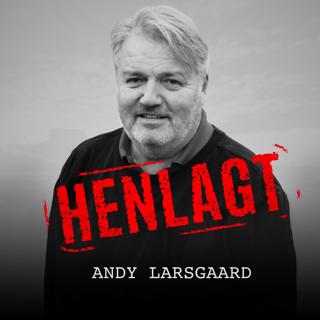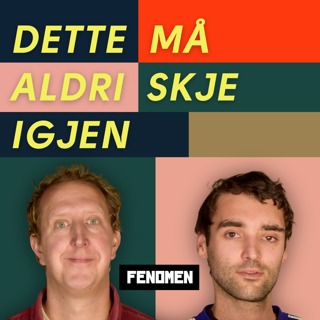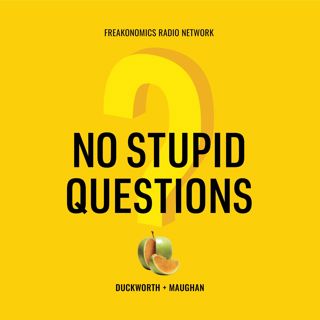
197. Is It Wrong to Lie to Children?
Why do we tell kids that a fairy will give them cash in exchange for their teeth? How should we talk to them about scary things in the world? And is Mike one of the greatest operatic tenors of all time? SOURCES:Laura Wheatman Hill, journalist.George Lin, Ph.D. student in psychology at the University of Pennsylvania.Melinda Wenner Moyer, journalist and author.Luciano Pavarotti, Italian operatic tenor.Amy Stoeber, clinical psychologist.Jacqueline Woolley, professor of psychology at the University of Texas at Austin. RESOURCES:"Parenting by Lying," by Peipei Setoh, Petrina Hui Xian Low, Gail D. Heyman, and Kang Lee (Current Directions in Psychological Science, 2024)."Should You Always Tell Your Kids the Truth? It Depends," by Laura Wheatman Hill (CNN, 2021)."Parenting by Lying in Childhood Is Associated With Negative Developmental Outcomes in Adulthood," by Peipei Setoh, Siqi Zhao, Rachel Santos, Gail D. Heyman, and Kang Lee (Journal of Experimental Child Psychology, 2020)."The Santa Lie," by Melinda Wenner Moyer (2012). EXTRAS:"When Is It OK to Tell a Lie?" by No Stupid Questions (2021).How to Raise Kids Who Aren't A*******: Science-Based Strategies for Better Parenting — from Tots to Teens, by Melinda Wenner Moyer (2021).Life Is Beautiful, film (1997)."Love at the Five and Dime," song by Nanci Griffith (1986).The Hiding Place, by Corrie ten Boom (1971). Hosted by Simplecast, an AdsWizz company. See pcm.adswizz.com for information about our collection and use of personal data for advertising.
26 Mai 202438min

Extra: Angela Duckworth on “Masters of Scale”
WaitWhat C.E.O. Jeff Berman interviews Angela about “grit-scaling” and her unlikely path to academic celebrity. Hosted by Simplecast, an AdsWizz company. See pcm.adswizz.com for information about our collection and use of personal data for advertising.
23 Mai 202433min
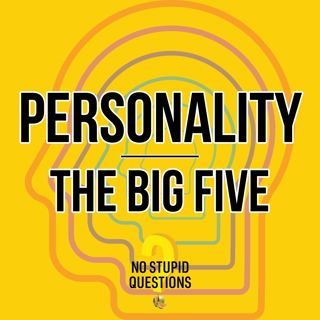
196. What’s Wrong With Being a Little Neurotic?
Is there any upside to negative emotions? What can comedians teach us about dealing with pain? And why did Angela eat off of a stranger’s plate at a sushi bar? SOURCES:Ludwig van Beethoven, 18th-19th century composer and pianist.Jen Christensen, reporter and producer at CNN.Lauren Eskreis-Winkler, professor of management & organizations at Northwestern University.Sigmund Freud, neurologist and founder of psychoanalysis.Shirley MacLaine, actor.George Vaillant, professor of psychiatry at Massachusetts General Hospital.Ali Wong, comedian. RESOURCES:"The Sad Clown: The Deep Emotions Behind Stand-Up Comedy," by Jen Christensen (CNN, 2018)."Neuroticism," by Jennifer L. Tackett and Benjamin B. Lahey (The Oxford handbook of the Five Factor Model, 2017)."Thinking Too Much: Self-Generated Thought as the Engine of Neuroticism," by Adam M. Perkins, Danilo Arnone, Jonathan Smallwood, and Dean Mobbs (Trends in Cognitive Sciences, 2015)."Survivor Mission: Do Those Who Survive Have a Drive to Thrive at Work?" by Lauren Eskreis-Winkler, Elizabeth Shulman, and Angela Duckworth (The Journal of Positive Psychology, 2014)."Age Differences in Personality Traits From 10 to 65: Big Five Domains and Facets in a Large Cross-Sectional Sample," by Christopher J. Soto, Oliver P. John, Samuel D. Gosling, and Jeff Potter (Journal of Personality and Social Psychology, 2011)."Adaptive Mental Mechanisms: Their Role in a Positive Psychology," by George Vaillant (American Psychologist, 2000).The Harvard Study of Adult Development. EXTRAS:Big Five Personality Inventory, by No Stupid Questions (2024).“Personality: The Big Five,” series by No Stupid Questions (2024).Terms of Endearment, film by James L. Brooks (1983)."Invictus," poem by William Ernest Henley (1888). Hosted by Simplecast, an AdsWizz company. See pcm.adswizz.com for information about our collection and use of personal data for advertising.
19 Mai 202438min

195. Can You Be Too Nice?
Where is the line between a good guy and a doormat? Do people with sharp elbows make more money? And why did Angela’s mother give away her birthday present?Take the Big Five inventory: freakonomics.com/bigfive SOURCES:Kristen Bell, actor.Jeff Bezos, founder and executive chairman of Amazon.Harry Connick Jr., singer, pianist, and actor.Juli Fraga, psychologist and writer.Adam Grant, professor of management and psychology at the University of Pennsylvania.Allison Sweet Grant, writer.Timothy Judge, chair of the department of Management and Human Resources at The Ohio State University.Frank Jacobs, journalist and columnist at Big Think.Beth Livingston, professor of industrial relations at the University of Iowa.Topher Payne, playwright and screenwriter.Dax Shepard, actor and podcast host. RESOURCES:"Are You a Chronic People-Pleaser? Here’s How to Be Kinder to Yourself," by Juli Fraga (The Washington Post, 2023)."Geopsychology: Your Personality Depends on Where You Live," by Frank Jacobs (Big Think, 2023)."We Need to Talk About ‘The Giving Tree,'" by Adam Grant and Allison Sweet Grant (The New York Times, 2020).The Tree Who Set Healthy Boundaries, by Topher Payne (2020)."Do as You’re Told! Facets of Agreeableness and Early Adult Outcomes for Inner-City Boys," by Margaret Kern, Angela Duckworth, Sergio Urzúa, Rolf Loeber, Magda Stouthamer-Loeber, and Donald Lynam (Journal of Research in Personality, 2013).Give and Take: Why Helping Others Drives Our Success, by Adam Grant (2013)."Do Nice Guys — and Gals — Really Finish Last? The Joint Effects of Sex and Agreeableness on Income," by Timothy Judge and Beth Livingston (Journal of Personality and Social Psychology, 2012). EXTRAS:Big Five Personality Inventory, by No Stupid Questions (2024).“Personality: The Big Five,” series by No Stupid Questions (2024)."Are You Suffering From Burnout?" by No Stupid Questions (2023). Hosted by Simplecast, an AdsWizz company. See pcm.adswizz.com for information about our collection and use of personal data for advertising.
12 Mai 202438min
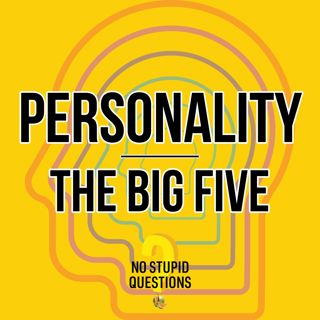
194. Is It Okay to Be an Introvert?
What’s the difference between being introverted and being shy? What are extroverts so cheerful about? And does Angela’s social battery ever run out?Take the Big Five inventory: freakonomics.com/bigfive SOURCES:Susan Cain, author.Will Fleeson, professor of psychology at Wake Forest University.Sigmund Freud, neurologist and founder of psychoanalysis.Adam Grant, professor of management and psychology at the University of Pennsylvania.Carl Jung, psychiatrist and psychoanalyst.Donald Kamentz, founder and C.E.O. of Contigo Ed.Sonja Lyubomirsky, professor of psychology at the University of California, Riverside.Seth Margolis, professor of biological chemistry at Johns Hopkins University. RESOURCES:"A Crucial Character Trait for Happiness," by Arthur C. Brooks (The Atlantic, 2023)."Experimental Manipulation of Extraverted and Introverted Behavior and Its Effects on Well-Being," by Seth Margolis and Sonja Lyubomirsky (Journal of Experimental Psychology: General, 2020)."Challenges to Capture the Big Five Personality Traits in Non-WEIRD Populations," by Rachid Laajaj, Karen Macours, Daniel Alejandro Pinzon Hernandez, Omar Arias, Samuel D. Gosling, Jeff Potter, Marta Rubio-Codina, and Renos Vakis (Science Advances, 2019)."Rethinking the Extraverted Sales Ideal: The Ambivert Advantage," by Adam Grant (Psychological Science, 2013)."The Power of Introverts," by Susan Cain (TED Talk, 2012).Quiet: The Power of Introverts in a World That Can't Stop Talking, by Susan Cain (2012)."Personality Trait Change in Adulthood," by Brent W. Roberts Daniel Mroczek (Current Directions in Psychological Science, 2008)."Toward a Structure- and Process-Integrated View of Personality: Traits as Density Distributions of States," by William Fleeson (Journal of Personality and Social Psychology, 2001). EXTRAS:Big Five Personality Inventory, by No Stupid Questions (2024).“Personality: The Big Five,” series by No Stupid Questions (2024). Hosted by Simplecast, an AdsWizz company. See pcm.adswizz.com for information about our collection and use of personal data for advertising.
5 Mai 202435min

193. Are You as Conscientious as You Think You Are?
Is it really that important to make your bed? What’s the benefit of hiring a lazy person? And how many cups of spinach can Mike fit in a red Solo cup? Take the Big Five inventory: freakonomics.com/bigfive SOURCES:David Barack, philosopher and neuroscientist at the University of Pennsylvania.Randall Bell, socio-economist and C.E.O. of Landmark Research Group.Julia Cameron, author, poet, songwriter, filmmaker, and playwright.Charles Duhigg, journalist and author.Guy Kawasaki, author and Silicon Valley venture capitalist.William McRaven, professor of national security at the University of Texas at Austin and retired Admiral in the United States Navy. RESOURCES:"Large Studies Reveal How Reference Bias Limits Policy Applications of Self-Report Measures," by Benjamin Lira, Joseph M. O’Brien, Pablo A. Peña, Brian M. Galla, Sidney D’Mello, David S. Yeager, Amy Defnet, Tim Kautz, Kate Munkacsy, and Angela Duckworth (Nature: Scientific Reports, 2022)."Too Much of a Good Thing? Exploring the Inverted-U Relationship Between Self-Control and Happiness," by Christopher Wiese, Louis Tay, Angela Duckworth, Sidney D'Mello, Lauren Kuykendall, Wilhelm Hofmann, Roy Baumeister, and Kathleen Vohs (Journal of Personality, 2018)."7 ‘Rich Habits’ of Highly Successful People, From a Man Who Studied Them for 25 Years," by Kathleen Elkins (CNBC, 2017).Make Your Bed: Little Things That Can Change Your Life...And Maybe the World, by William McRaven (2017).The Power of Habit: Why We Do What We Do in Life and Business, by Charles Duhigg (2012)."Who Does Well in Life? Conscientious Adults Excel in Both Objective and Subjective Success," by Angela Duckworth, David Weir, Eli Tsukayama, and David Kwok (Frontiers in Psychology, 2012).The Artist's Way: A Spiritual Path to Higher Creativity, by Julia Cameron (1992). EXTRAS:Big Five Personality Inventory, by No Stupid Questions (2024)."Personality: The Big Five," series by No Stupid Questions (2024)."Angela Duckworth: The Gritty Road to Growth," by Guy Kawasaki's Remarkable People (2024)."How to Have Great Conversations," by People I (Mostly) Admire (2024). Hosted by Simplecast, an AdsWizz company. See pcm.adswizz.com for information about our collection and use of personal data for advertising.
28 Apr 202439min

Should You Get Out of Your Comfort Zone?
What do the most creative people have in common? How open-minded are you, really? And what’s wrong with ordering eggs Benedict? Take the Big Five inventory: freakonomics.com/bigfive SOURCES:Max Bennett, co-founder and C.E.O. of Alby.David Epstein, author and journalist.Ayelet Fishbach, professor of behavioral science and marketing at the University of Chicago Booth School of Business.Alison Gopnik, professor of psychology at the University of California, Berkeley.Steve Jobs, co-founder and former C.E.O. of Apple.Oliver John, professor of psychology at the University of California, Berkeley.Daniel Kahneman, professor emeritus of psychology and public affairs at Princeton University.Claude Shannon, 20th century mathematician and computer scientist.Jannik Sinner, professional tennis player.Christopher Soto, professor of psychology at Colby College.Dashun Wang, professor of management and organizations at Northwestern University.Kaitlin Woolley, professor of marketing at the Cornell SC Johnson College of Business. RESOURCES:A Brief History of Intelligence: Evolution, AI, and the Five Breakthroughs That Made Our Brains, by Max Bennett (2023)."Exploration vs. Exploitation: Adults Are Learning (Once Again) From Children," by Alison Gopnik (Observer, 2023)."Motivating Personal Growth by Seeking Discomfort," by Kaitlin Woolley and Ayelet Fishbach (Psychological Science, 2022)."Understanding the Onset of Hot Streaks Across Artistic, Cultural, and Scientific Careers," by Lu Liu, Nima Dehmamy, Jillian Chown, C. Lee Giles, and Dashun Wang (Nature Communications, 2021)."Improv Experience Promotes Divergent Thinking, Uncertainty Tolerance, and Affective Well-Being," by Peter Felsman, Sanuri Gunawardena, and Colleen M. Seifert (Thinking Skills and Creativity, 2020).Range: Why Generalists Triumph in a Specialized World, by David Epstein (2019)."Openness to Experience," by Robert R. McCrae and David M. Greenberg (The Wiley Handbook of Genius, 2014). EXTRAS:Big Five Personality Inventory, by No Stupid Questions (2024)."David Epstein Knows Something About Almost Everything," by People I (Mostly) Admire (2021). Hosted by Simplecast, an AdsWizz company. See pcm.adswizz.com for information about our collection and use of personal data for advertising.
21 Apr 202440min

191. Can You Change Your Personality?
Are you the same person you were a decade ago? Do we get better as we age? And is your sixth-grade class clown still funny? SOURCES:Aaron (Tim) Beck, professor emeritus of psychiatry at the University of Pennsylvania.Daniel Gilbert, professor of psychology at Harvard University.Olga Khazan, staff writer at The Atlantic. Brian Little, professor of psychology at the University of Cambridge.Jordi Quoidbach, professor of people management and organisation at ESADE, University Ramon Llull.Carl Rogers, 20th-century psychologist.Martin Short, actor and comedian.Richard Wiseman, professor of the public understanding of psychology at the University of Hertfordshire.Timothy Wilson, professor of psychology at the University of Virginia. RESOURCES:"I Gave Myself Three Months to Change My Personality," by Olga Khazan (The Atlantic, 2022)."You Can Be a Different Person After the Pandemic," by Olga Khazan (The New York Times, 2021)."The Theory of Modes: Applications to Schizophrenia and Other Psychological Conditions," by Aaron T. Beck, Molly R. Finkel, and Judith S. Beck (Cognitive Therapy and Research, 2020).“Brian Little: Are Human Personalities Hardwired?" by Guy Raz (TED Radio Hour, 2017).I Must Say: My Life As a Humble Comedy Legend, by Martin Short (2014)."The End of History Illusion," by Jordi Quoidbach, Daniel T. Gilbert, and Timothy D. Wilson (Science, 2013)."Age Differences in Personality Traits From 10 to 65: Big Five Domains and Facets in a Large Cross-Sectional Sample," by Christopher J. Soto, Oliver P. John, Samuel D. Gosling, and Jeff Potter (Journal of Personality and Social Psychology, 2011)."The Rank-Order Consistency of Personality Traits From Childhood to Old Age: A Guantitative Review of Longitudinal Studies," by Brent W. Roberts and Wendy F. DelVecchio (Psychological Bulletin, 2000). EXTRAS:Big Five Personality Inventory, by No Stupid Questions (2024).Comedians in Cars Getting Coffee, TV series (2012-present). Hosted by Simplecast, an AdsWizz company. See pcm.adswizz.com for information about our collection and use of personal data for advertising.
14 Apr 202439min
